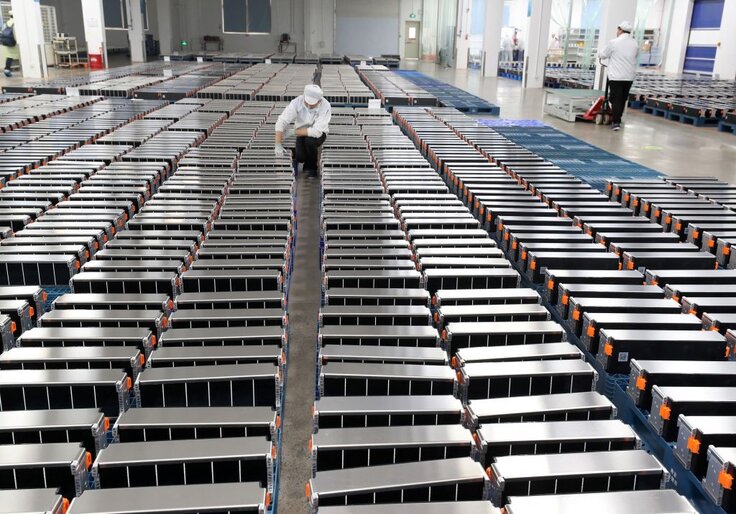House Democrats are ramming a bill through Congress that could be a boon to China's green energy sector.
The INVEST in America Act, a bill sponsored by House Transportation Committee chairman Peter DeFazio (D., Ore.), could kick millions of dollars to Chinese industry by promoting "green" technologies, a rapidly developing sector of China's economy. The act gives incentives to businesses that move away from gas-powered engines and includes measures to implement a nationwide network of electric-charging materials, but it lacks provisions that those materials will not be made with Chinese slave labor.
Committee Democrats gutted those safeguards, which would have ensured that electric vehicle material procurement would occur in the United States. China possesses the largest stockpile of rare earth minerals used in electric car batteries in the world. In 2018, Beijing provided some 80 percent of the United States's rare earth imports. Experts say China's domination of the rare earth supply chain is a major challenge as the Communist Party seeks ways to defeat the United States.
House Transportation Committee ranking member Sam Graves (R., Mo.) told the Washington Free Beacon that Democrats are "selling out to China" by pushing the bill forward.
"The Majority is selling out to China—the world's worst polluter—to meet their Green New Deal goals, specifically when it comes to promoting widespread adoption of electric vehicles and deployment of charging infrastructure," Graves said. "What's worse, China is known to rely on slave and child labor to mine many of the critical minerals that are key components in the charging infrastructure funded in this bill. Congress should not be sending U.S. tax dollars to line the pockets of the Chinese government and their allies."
The bill's green kickbacks may also enable Beijing in its blatant human rights abuses of Uyghur Muslims in the Xinjiang region. Xinjiang has one of China's largest state-owned mining firms for minerals integral to electric vehicles. Solar energy—another sector likely to benefit from the Democratic bill—also sources many of its materials from Xinjiang. White House adviser John Kerry admitted in May that the use of slave labor in the solar energy sector remains a major issue. The Biden administration has moved to sanction one Xinjiang solar company in June for its abuses of Uyghur Muslims.
Rep. Pete Stauber (R., Minn.) attempted to include a provision that would combat China's use of child slave labor in farming for critical earth minerals. Democrats, led by DeFazio, stripped Stauber's language, which would have closed the Democrats' "Buy American" loopholes, prevented slave labor, and allowed for domestic mining of critical earth materials in the United States.
Rather than banning the use of critical minerals from China, DeFazio’s measure only allowed for the creation of a "Task Force to Promote American Vehicle Competitiveness," which would explore American electric-vehicle battery production while allowing China to remain dominant in the market.
DeFazio did not return a request for comment.
During debate over the bill, Democrats, including Rep. Seth Moulton (Mass.), lauded Communist China's progress on transportation issues, hailing the country that employs slave labor as being more advanced than the United States.
"And so, yes, China may be a communist country, but they are leading the world right now in transportation technology," Moulton said. "They have recognized that they get a better return on investment for high-speed rail. And I say, why should Chinese travelers have more freedom, more options to travel than Americans? Let's invest in a program with a good return on investment and then let the free market reign."
Moulton did not respond to a request for comment. The bill will receive a floor vote on Thursday.
